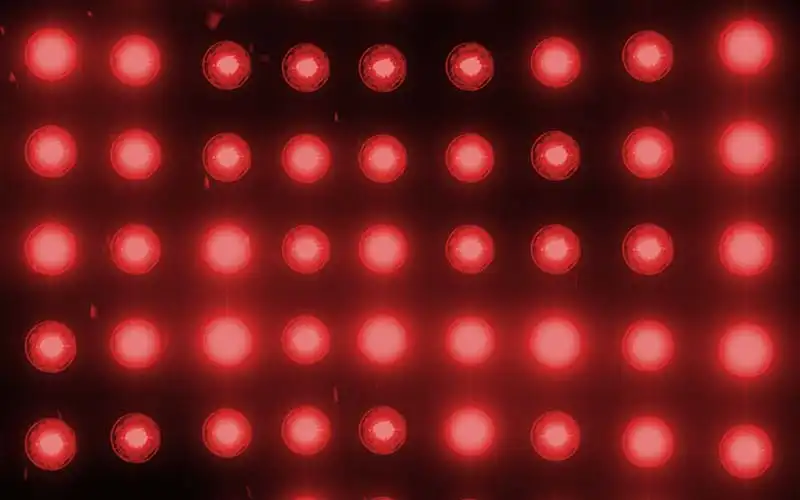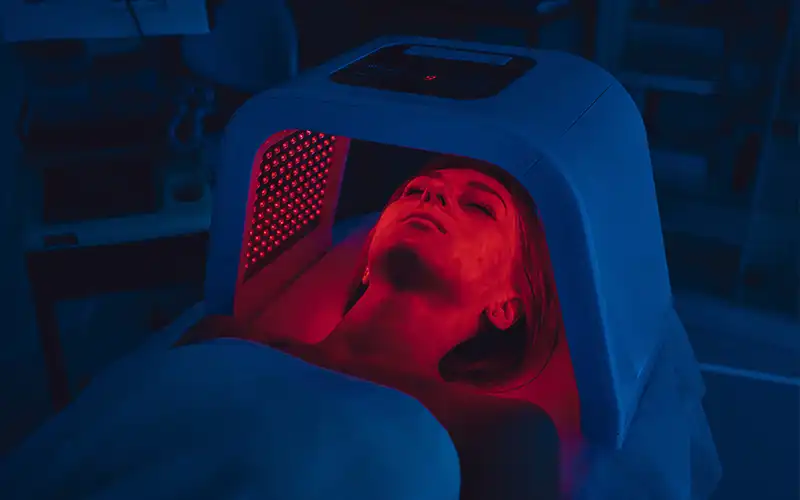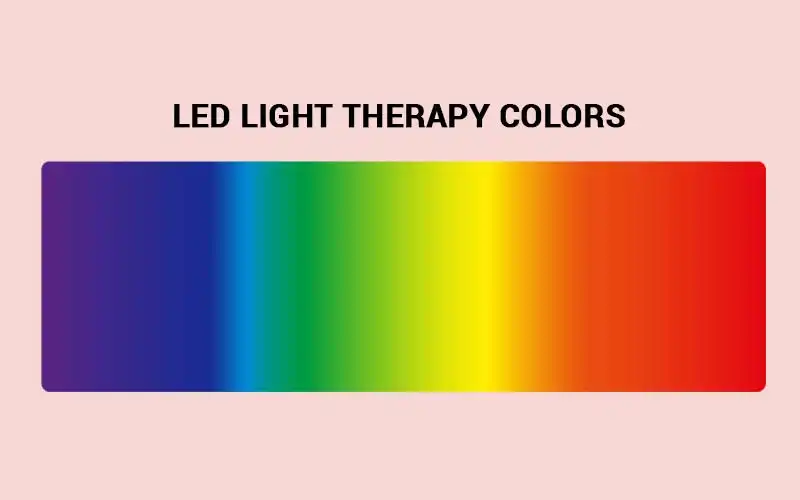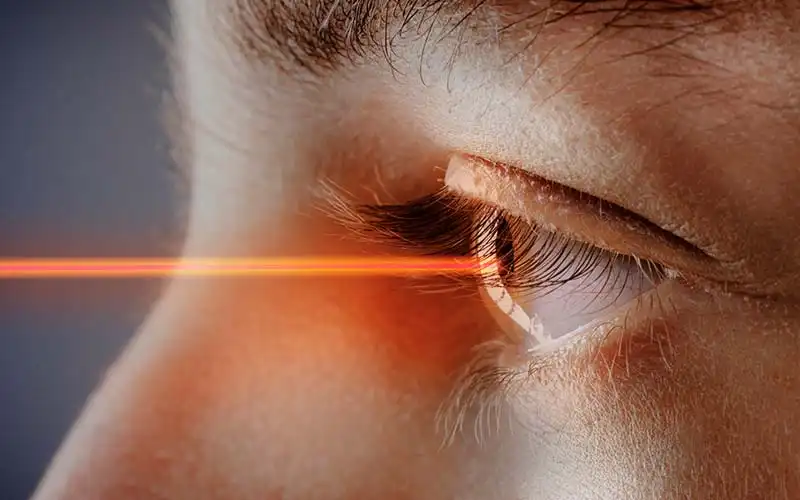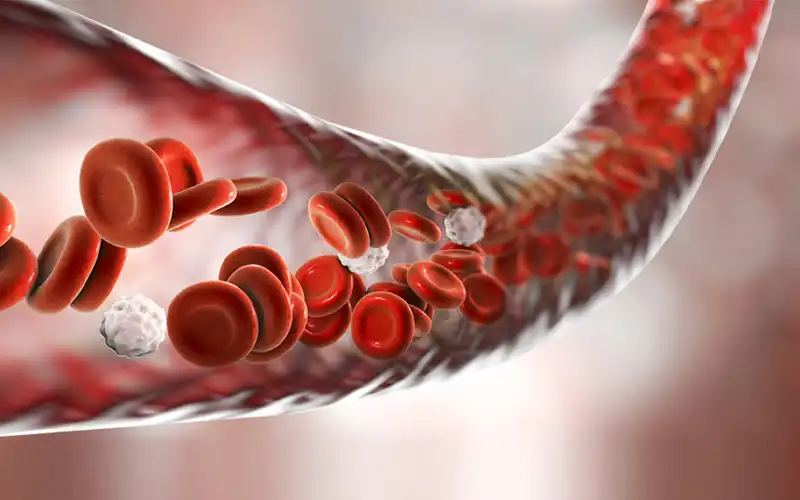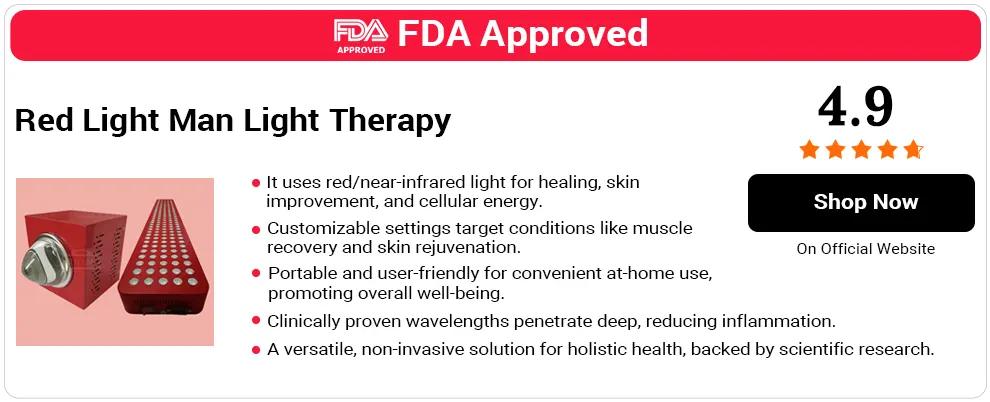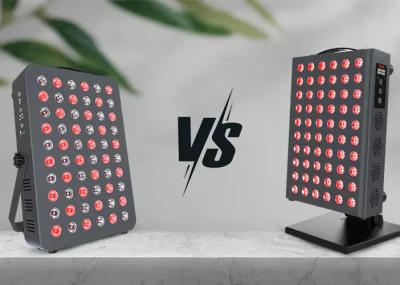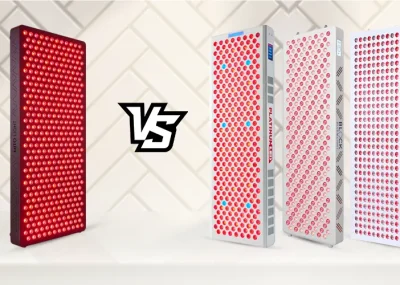What is Pulsing in Red Light Therapy?
Pulsing or Pulsed light refers to the use of intermittent bursts of light in treatment, rather than a continuous light. What are continuous lights? While continuous light is consistent, pulsed light involves both on and off time, so you receive it for about half the duration overall. For this reason, continuous light offers more powerful treatment.
Intense pulsed light (IPL) devices on their own are a treatment which may be effective for improving skin health, decreasing signs of age and hyperpigmentation, reducing the appearance of scars, and hair removal.
However, you may have seen red light therapy devices, which offer pulsed light, and wondered whether this was an effective option or of special benefit. Is it?
Can You Use Pulsing Light in Red Light Therapy?
In fact, while some manufacturers may present it as such, pulsed light is not the best option to use in combination with LED light treatment. Pulsing red light therapy is half as intense as continuous light, making it much less effective and of low therapeutic value in treatment.
For potent results, look for a LED light therapy device that uses continuous rather than pulsing red light. Pulsed light will be unlikely to lead to the health advantages you are aiming for in terms of healing, skin rejuvenation, or any other benefits.
How Does Pulsing with LED Light Therapy Compare Its Use in Laser Therapy?
There is an important distinction between LED light therapy and laser therapy, in that lasers use intense heat to produce benefits while LEDs use an electric current to generate visible light. With laser therapy, the intense heat has risks like burning your skin or causing internal damage.
An article by Vladimir Heiskanen and Michael R. Hamblin published in Photochemical & Photobiological Sciences explained the distinction between lasers and light-emitting diodes [1]. As we have explained in the Hooga Red Light Therapy article which reviews products that benefit for anti-aging, brain function, mood, and muscle growth as well.
Using pulsating laser light makes a lot of sense as a safety feature to decrease the impact of the laser and lessen the risks. LED light therapy is a much safer technology and does not emit heat, so not only is the pulsing unnecessary, it detracts from the power and efficacy of the treatment.
We documented Novaa red light therapy reviews which benefit in reducing pain, and inflammation, increasing energy, and helping to boost energy and power.
Examining the Research: The Pivitol 2010 Study
A Harvard University study published by Michael R. Hamblin, et al in Lasers in Surgery in Medicine in 2010 led to the idea that pulsed light was more effective than continuous light in red light therapy, due to a misunderstanding of the results [2].
The researchers concluded that pulsing light was a better option than continuous light in low level light therapy. However, the study looked exclusively at their impact when using laser light, and not LED light therapy, as this technology was still in development at the time.
We now know that the results do not apply to LED light, but this important piece of research led to the widespread idea that pulsed red light therapy was an effective treatment modality.
Is Pulsing With Red Light Therapy Safe?
In addition to the fact that pulsing red light therapy is not very effective, in some users it may lead to side effects like nausea, headaches, dizziness, or rapid eye movements. This is particularly true if you are overly sensitive to flashing lights.
If you do use pulsing red light, make sure you wear a protective mask over your eyes to prevent any possible damage and reduce the risk of side effects.
We covered the article called led bed therapy which is beneficial in muscle recovery, decreased pain, and inflammation, and improves mood and brain health, it is safe to use without any side effects.
Which Features Should You Look For in a Red Light Therapy Device?
While we have established that you should look for a red light therapy device which uses continuous, and not pulsed red light, what other features are important?
Irradiance
The level of irradiance refers to the amount of light energy that your device emits per second. High irradiance equals more power output, making this desirable if you want to achieve your goals as quickly as possible.
The irradiance measurement is in milliwatts per square centimeter, and you’ll get the best output from a device which offers from 30-160mW/cm2.
Most companies will also provide the watts for each LED light, which is a measure of the power usage rather than output. Watts are much less important than irradiance when it comes to choosing a powerful red light therapy product.
An article by Weimin Li; Zhiliang Jin; Jialin Liu; Liquan Guo; Haiyang Wang, and Daxi Xiong, et al published by the Institute of Electrical and Electronics Engineers explained the design of a high irradiance multi-wavelength light therapy system [3].
We also added reviews of dpl light therapy which helps to heal acne, smooth wrinkles, and fine lines with no harmful side effects and risks.
Wavelengths
The wavelength the devices uses is a measure of how deeply the light penetrates your body, with different benefits. Wavelengths like infrared light fall in the 760-1000 nm range, and as we explained in our review of Hooga Red Light Therapy, delve deepest for rich healing benefits.
Red wavelengths are very commonly used, and run from about 620-660nm. They offer a penetration of just under the surface, for great wound healing, skin anti-aging, rejuvenation, and a range of other benefits.
Blue light from 450-490nm is most commonly used for the treatment of acne, as it works on the surface of the skin to kill harmful bacteria, reduce inflammation, lessen redness, and prevent breakouts.
There are other color wavelengths in some LED therapy devices, such as purple, yellow, amber, or green. They also offer benefits, but are less common.
Safety
The research indicates that LED light therapy is safe, as explained in our review of Recharge Health: FlexBeam, and has no serious risks or potential side effects.
When selecting a LED light therapy product, it’s essential that you choose a device which is FDA cleared and thus follows strict safety standards in manufacturing and testing. You should also make sure the technology has either zero or very low EMF levels.
Are There Benefits to Pulsed Light in Red Light Therapy?
While for the most part pulse laser therapy is not helpful in LED devices, there is some support for its ability to stimulate brain entrainment.
This involves activating gamma and alpha brainwaves to help the neurons to synchronize with sounds and frequencies in the environment. This may make it effective in the treatment of degenerative conditions like Alzheimer’s and Parkinson’s.
A pilot exploratory study by Reza Zomorrodi, Genane Loheswaran, Abhiram Pushparaj and Lew Lim published in Scientific Reports found support for the use of transcranial and intranasal 830nm NIR light in modulating neural oscillations. We reviewed platinumled biomax article which has the benefits of promoting brain health and maintaining mood and muscle health [4].
What Are the Benefits of IPL Outside of Red Light Therapy?
Intense Pulsed Light is a technology outside of its inclusion in LED and laser devices, and today it is primarily for skin health enhancement and laser hair removal. The pulsed heat may be effective at killing the hair follicle to prevent or slow regrowth.
Using pulsing light in this case helps stop the heat from burning or damaging the skin. This is also true in IPL treatment for skin care.
The pulsing is a safety feature, and the treatment may be effective for a range of benefits like decreasing redness, stimulating collagen production for tighter skin, reducing wrinkles and fine lines, fading hyperpigmentation and brown spots, and improving skin tone and texture.
Check out the HairMax Review, does it has benefits, does it carry side effects, whether it is risk-free, and does hairmax work or not? Most of your questions can be answered in that particular article.
FAQs
Q: How Does Pulsing Differ From Flicker?
A: Red light panels use alternating current power, which in the case of lower LED light therapy devices may lead to a flicker. This is not a deliberate feature like pulsing, rather it’s a negative consequence of the technology.
There are a number of leading brands which offer devices that are low or even flicker free, so keep an eye out for that when you buy a product. Like the range of LED panels from Mito Red Light.
Q: Is Intense Pulsed Light Better Than Red Light Therapy?
A: Red light therapy has much wider benefits compared to IPL, which today is mostly for skin rejuvenation and hair removal. When it comes to skin benefits, IPL does delve deeper, while red light is better for surface level treatment.
However, red light therapy is much easier on the complexion, while with IPL you run the risk of surface burns of discomfort from the treatment, or even hyperpigmentation.
Q: Can You Use Intense Pulsed Light Therapy At Home?
A: Yes, there are a number of devices on the market for hair removal using IPL technology, and some for skin health benefits too. When it comes to the complexion, you’re better off using a LED light device for a gentler, safer treatment.
Q: What is the Measure For Pulsed Light?
A: The unit of measurement for pulsed light is Hertz, or Hz, which indicates the interval in between each pulse – in other words, the cycles per second.
Q: Should I Buy a Device That Offers Pulsing as an Option?
A: Even if you do not plan to use the pulsing mode, it’s best to not buy a device which offers this option. As it’s less effective than LED light alone, the inclusion of this feature indicates that the manufacturer may not be as updated in their knowledge of the research as you would hope.
Conclusion
The most important conclusion of this article is this: do not use pulsing red light therapy. This feature is half as effective as continuous light, and it detracts from the efficacy of a LED light device. It’s suitable for laser technology, to prevent the intensity of the heat from leading to burns or other skin damage, and is primarily useful in IPL devices for hair removal and skin health benefits.
When choosing a LED light therapy device, pick one which uses continuous light rather than pulsing for optimal benefits. While pulsing in red light therapy may have some moderate benefits in brain entrainment, in general you’ll receive faster results without this feature.
As part of your holistic wellness routine, consider exploring other innovative therapies like cryotherapy at Cryofit Clinic, in addition to choosing the right red light therapy device for your needs.

